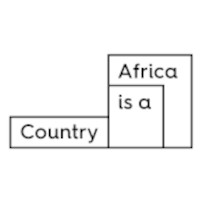Hiking as Kenyans in Kenya is pathbreaking, both literally and metaphorically.
Uhuru Peak, Tanzania. Public Domain.
In late May, we were among the many people around the world mourning the death of Kenyan mountain climber Cheruiyot Kirui who died on Mount Everest while trying to summit without supplementary oxygen. Gitonga was especially moved, as he knew Cheruiyot personally and had earlier attempted to be the first black Kenyan to climb Mount Everest. Gitonga and Cheruiyot shared a love of exploring the outdoors and pushing boundaries.
Another person seeking to push boundaries is Zoe Wanjiru, who was one of 13 women—including only two women from Africa—selected from 700 applicants to receive a 2024 scholarship from the AWE Summit Scholarship Foundation to fund her next big mountain challenge. The scholarship’s stated purpose is to “break down barriers to entry to the big mountain realm for women and gender-diverse adventurers from all walks of life.”
However, political barriers to Wanjiru’s entry could not be overcome. Her visa application was denied by the US Embassy in Nairobi in June, with US officials telling her that her travel history was too weak because she has previously only traveled in African countries and the United Arab Emirates. Frustrated, Wanjiru took to social media to try to shame the US Embassy into reconsidering her case.
Africans trying to travel internationally are regularly denied visas—to the US, Canada, European Union, UK, and other countries—even when those individuals have all documents in order, are invited to bring their expertise to academic conferences, attend a daughter’s wedding, or climb a mountain. Why does Zoe Wanjiru have to first visit several non-African countries to prove herself a trustworthy visitor to the US? What does it take to be free of racialized restrictions on global travel?
In response to Wanjiru’s US visa complaint on X, one supporter wrote: “It’s funny how we handle hundreds of US citizens for adventures in Kenya, but when it is a turn for us to do the same in the US, we are denied the opportunity.” Global travel remains an unequal place where people are discriminated against due to country of origin, race, religion, education, income, and more.
In Kenya, however, a different kind of freedom of movement is being exercised. More and more Kenyans are taking up hiking, a trend facilitated by the growing multitude of small, Kenyan-owned tour businesses encouraging people to explore outdoor spaces.
One of these successful businesses, Hikemaniak, launched a first expedition for paying clients in Kenya on June 1 2016, Madaraka Day, a national holiday that commemorates Kenya’s 1963 independence after decades of British colonial rule. The date was deliberate: the company wanted to recognize that Kenyans’ freedom to move within their country without restrictions today is due to previous generations’ struggles for political independence from colonialism.
Yet, restrictions on Kenyans’ access to experience more of the land now known as Kenya were not overcome with political independence. The country’s tourism industry has continued to be purposely structured to cater to privileged foreign tourists with package tours that deliver a highly stylized “out of Africa” colonial fantasy and nostalgia, and animal-focused safaris, that are largely absent of Kenyan people, or include a few Kenyans as “exotic” and “primordial” others. Allowing less controlled interactions between visitors and Kenyans would complicate the reductionist commodification of the country that has been so profitable for predominantly foreign corporations, as well as white settler businesses in Kenya.
The country is not stuck in that history, however. With the rise of a middle class in Kenya and improved road and rail infrastructure, Kenyans have increasingly become tourists in their own country. Still, the model has largely remained limited to profiting beach hotels and safari companies. But this hegemon is beginning to crack as hikers venture into different spaces.
Since that first Madaraka Day hike in 2016, Hikemaniak and other small Kenyan-owned businesses have taken tens of thousands of Kenyans and visitors on thousands of hikes and climbs around the country. This is a growing sector of activity, especially since the unlikely year of 2020. In 2020, the Government of Kenya enforced months of restrictions in response to the COVID-19 pandemic, closing schools, non-essential workplaces and businesses, and places of worship, imposing an evening curfew, and restricting people’s travel to within their county. Confined to their homes and their social media scrolling, many people in Nairobi noticed the outlier images surfacing in their feeds of beautiful waterfalls and forest walks posted by Kenyans in their local vicinity. Paradoxically, the lockdown became the impetus for more Kenyans to explore their outdoors. Alex Kamau, founder of the outdoor adventure company Let’s Drift, recounts: “Pre-COVID, maybe 5 people would sign up for one of our Saturday hikes. During COVID, suddenly 100 to 200 people were signing up. We had to offer more.”
By Kamau’s reckoning, the COVID restrictions did for Kenyans’ hiking culture what otherwise might have taken 10 years. He suggests that people desired some escape from the confines and monotony of their routine: “Many people were evaluating their lifestyles’ and wanted more from life—more adventure, challenge, diversity, and mental and physical health.” Marsha Mumbi witnessed the same: “People were stuck at home, and they just wanted to get outside and do something.” Marsha was one of those people who started signing up for hikes organized by a small company and later began coordinating hikes for her friends around Nakuru. She became so enthralled with hiking that in January 2022 she launched her own business, Mamba Hikers, which has since taken more than 1,000 people out on hikes and climbs across Kenya and Tanzania.
As a business sector, hiking is an example of Kenyan DIY entrepreneurialism, with no government assistance and minimal regulation. Its expansion has not been a top-down reaction to the COVID period’s collapse of the foreign tourist market or the ongoing unpredictability of that market. That market has bounced back—often still in its own fragile bubble of exclusions and make-believe—while Kenyans are actively diversifying what’s recognized as recreation and tourism.
Hiking as Kenyans in Kenya is pathbreaking, both literally and metaphorically. Kenyans are guiding other Kenyans up and off the beaten paths of Mount Kenya and into appreciating lesser-known places. As people explore the outdoors, the hope is that they are stepping into potentially healthier lifestyles and interacting with more respect for our natural world. And as Kenyans visit diverse areas of their country, they interact with people of different backgrounds, sharing food and information, feeling more comfortable among others they’ve previously only heard stories about. The trails are places where strangers meet and get to know a little more about their shared country.
These initiatives are making more spaces within the country accessible to Kenyans, thereby facilitating more freedom of movement albeit still mainly for those who can afford the prices and leisure time. In prioritizing accessibility for Kenyans, hiking companies appreciate that prices need to stay modest enough to attract new clientele but they are still prohibitive for many. For example, a day hike is usually priced at Ksh3,600—under USD30—including transport, guiding, and access fees.
In other contexts, like Canada and the US, there are contemporary social and commercial initiatives to encourage more people of color to access outdoor spaces—previously experienced as predominantly white spaces. These are resonant in Kenya too where there is a push to mentor more Kenyans in rock climbing to more fully open up a sport that is still predominantly white, even in Kenya.
Thankfully, Kenyans are not just guiding foreign visitors through their beautiful country, but also their fellow Kenyans, thereby opening up all sorts of connections and possibilities, including joy, which as Nanjala Nyabola notes is such an important dimension of human travel. We see elements of a utopian project in this. Freedom to move is a political right but it is also a humanist endeavor when done with a consciousness to step out of comfort zones and nurture new solidarities—with other humans and non-human species—that have long been unexplored.






